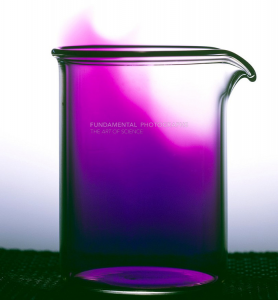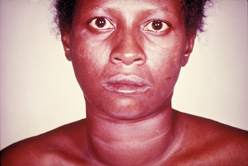3 Dangers of Iodine Therapy for Hypothyroidism
Written by Tom Brimeyer | Posted in Supplements | 7 Comments
 Iodine therapy has become quite popular as a “potential” solution for hypothyroidism today. Much of its popularity arises from its use in treating goiters centuries ago.
Iodine therapy has become quite popular as a “potential” solution for hypothyroidism today. Much of its popularity arises from its use in treating goiters centuries ago.
But today, could it be causing more harm than good?
It is well known that the thyroid gland requires iodine to produce thyroid hormone. But few people understand the potential dangers of iodine therapy and excessive iodine consumption.
Dangers of Excessive Iodine
 Today, iodine deficiency is extremely rare even though it is still being touted as a major cause of hypothyroidism. Because of the misleading idea of iodine deficiency, the market has become flooded with iodine supplements that claim to cure hypothyroidism, which in actuality pose a greater threat to your thyroid and health than you realize.
Today, iodine deficiency is extremely rare even though it is still being touted as a major cause of hypothyroidism. Because of the misleading idea of iodine deficiency, the market has become flooded with iodine supplements that claim to cure hypothyroidism, which in actuality pose a greater threat to your thyroid and health than you realize.
The FDA recommends 150 mcg (micrograms) of iodine daily for healthy thyroid function. This accounts for iodine in your food, as well as any additional supplementation.
As early as the 1970’s it was determined that people in the US were getting 10 times more iodine than they needed which grossly exceeds the recommended allowance.
With so much focus on iodine’s historical role in the treatment of goiters as well as the more recent discovery of its role in the production of thyroid hormone, very little, if any, attention has been placed on the dangers associated with iodine toxicity.
Because of this, most people are completely unaware that excess iodine is also a common cause of goiters, hypothyroidism, and thyroiditis today.
History of Iodine Therapy
The use of iodine therapy for goiters had actually been documented for thousands of years prior to the discovery of the thyroid gland.
One of the first documented cases of goiter treatment goes as far back as 1600 B.C. (more than 3600 years ago) by the ancient Chinese. At that time, what they only understood as a swollen neck was treated with the use of burnt sponge, which reduced the swelling.
The fact that burnt sponge was used as a treatment for goiter continually throughout history from 1600 B.C. through the 1800’s is a testament to its effectiveness. However, the mechanism by which burnt sponge acted was entirely unknown throughout this entire period.
It wasn’t until 1820 that Dr. Jean François Condet discovered that iodine was the active ingredient in the burnt sponge remedy. It was at this time that iodine therapy first became popular.
However, in 1820 as the use of supplemental iodine began, Condet also discovered the issue of iodine toxicity and attempted to warn people of the dangers.
History Repeats Itself – When Will We Learn From Our Mistakes?
 When I was young kid in school, I once questioned my history teacher as to the importance of studying history. His answer, which suited me at the time, was that studying history was important so that we don’t make the same mistakes over again.
When I was young kid in school, I once questioned my history teacher as to the importance of studying history. His answer, which suited me at the time, was that studying history was important so that we don’t make the same mistakes over again.
I suppose there is truth to this in theory but unfortunately, this is rarely the case in reality.
With Condet’s discovery in 1820, the iodine “fad” began. Iodine became readily available in supplemental form and its popularity rose dramatically. People even wore small containers of iodine around their necks so that it was conveniently available when they wanted it.
But the fad didn’t last because iodine quickly gained negative publicity from its over-use and the increased incidence of iodine toxicity.
But this wasn’t the end of the iodine fad…
In 1896 Eugen Baumann discovered that the thyroid gland was rich in iodine. Shortly after this discovery, in 1910, iodine supplementation was back on the map as a very popular treatment for thyroid disorders.
Iodine Deficiency Is Not the Cause of Goiter or Hypothyroidism Today
It wasn’t until the major advancements in science in the 1940’s that scientists began to recognize that there were other factors involved in the process of hypothyroidism that iodine supplementation did not solve.
If iodine therapy was the end-all solution then it would be safe to say that the occurrence of hypothyroidism would have drastically decreased during this time. The incidence of goiter may have decreased but this was also largely due to the development of modern industrialized farming practices and the introduction of iodine into the food supply. However, the incidence of hypothyroidism was still quite prevalent.
As industrialized farming practices were improved, the majority of food was being grown in iodine rich soil and people began to consume more than enough iodine from the foods they ate.
At this point in time, it was understood that iodine deficiency alone, was not the cause of hypothyroidism or goiters. As mentioned above, in the 1970’s it was found that people were getting as much as 10 times more iodine than they needed.
Scientists then began focusing on other causes such as anti-thyroid foods as well as other very interesting concepts. One such theory was that the common day demands on the body had increased which in turn, increased the body’s need for MORE thyroid hormone. As a side note: This is an important subject that will be covered in more detail in the future.
Problems with Iodine Therapy for Hypothyroidism
We’ve already established that the recommended daily allowance of iodine is 150 micrograms. Most of the popular iodine supplements today are recommending the use of 12.5 milligrams or more. That’s 83 times the recommended daily allowance.
Many proponents of iodine therapy recommend as much as 50 milligrams to 100 milligrams of iodine daily which is 350 to 650 times the recommend daily allowance.
This is a sure way to develop iodine toxicity, which is known to be quite dangerous to your thyroid!
Danger #1 – Excessive Iodine Causes Autoimmune Thyroiditis
There is quite a bit of research showing that excessive iodine greatly increases your risk of developing autoimmune thyroiditis. Considering the prevalence of thyroiditis today, this is a topic that deserves far more attention than it currently gets.
Below are just a few of the many studies that have demonstrated this link:
Induction of autoimmune thyroiditis in chickens by dietary iodine
http://www.sciencemag.org/content/230/4723/325.abstract
These results suggest that excessive consumption of iodine in the United States may be responsible for the increased incidence of autoimmune thyroiditis.
[Spontaneous Hashimoto-like thyroiditis in cats]
http://www.ncbi.nlm.nih.gov/pubmed/9065031
Animals with excess iodide intake, however, show an aggravation of the autoimmune inflammatory activity.
Iodine and thyroid autoimmune disease in animal models.
http://www.ncbi.nlm.nih.gov/pubmed/11396701
In general, iodine deficiency attenuates, while iodine excess accelerates autoimmune thyroiditis in autoimmune prone individuals.
Danger #2 – Excessive Iodine Can Cause Hypothyroidism
Excessive iodine was once used to treat hyperthyroidism because of iodine’s ability to suppress thyroid function. However, in hypothyroid people or people with normal thyroid function, it has the same effect and can lower thyroid function far below normal. For many, this is a temporary effect that subsides after the source of excessive iodine is removed. However, there are many cases of iodine-induced hypothyroidism that continue long term.
[Hypothyroidism related to excess iodine]
http://www.ncbi.nlm.nih.gov/pubmed/12448334
WOLFF-CHAIKOFF’S EFFECT: The thyroid gland has a capacity to reduce thyroid hormone production in the presence of excess iodine by reducing the organification of the iodine.
Danger #3 – Excessive Iodine Can Cause Goiters
 While many people are led to believe that iodine is the only way to treat hypothyroidism and goiters, most are unaware that excessive iodine can actually have the opposite effect and cause hypothyroidism as well as the formation of goiters.
While many people are led to believe that iodine is the only way to treat hypothyroidism and goiters, most are unaware that excessive iodine can actually have the opposite effect and cause hypothyroidism as well as the formation of goiters.
There are a couple of common ways this occurs…
- Excessive iodine can cause thyroid cells to divide and grow in number. This causes an overall enlargement of the gland itself. But, when this occurs your cells lose the ability to make thyroid hormone.
- Excessive iodine can cause Iodide Myxedema. This is where there’s an accumulation of connective tissue as well as an increase in edema around the neck and thyroid. This is most commonly seen in those who suffer from Hashimoto’s Thyroiditis.Iodide Myxedema is also common in areas of Japan where seaweed soup is commonly consumed which can contain 80 to 200 mg of iodide.
As you can see, there are some very serious dangers associated with the use of iodine therapy for hypothyroidism. The bottom line is that today, we are posed with a far greater risk of developing iodine toxicity than we are of an iodine deficiency. And instead of falling for the latest and greatest “fad” thyroid supplement, it’s important to understand what you are putting in your body and the potential negative effects it can have on your thyroid and your health.












Ola Lachney
12. Jun, 2012
About 2 yrs. ago, because I knew my thyroid med. was not working for me, I asked my doc. about supplementing with Kelp. He said that he didn’t think it was necessary, but it wouldn’t hurt me. I bought the kelp and took it for a few months. My symptoms were worse and the nurse called and they lowered my Synthroid. When I stopped the Kelp, at my own discretion, then I needed the higher Synthroid. But, my GP was going up and down with the lab results.
I didn’t realize that I needed a specialized endocrinologist to help me. We have only one endocrinologist in a 100 mi. radius and he is booked for months ahead. My GP promised to get me in and after a couple of weeks and 3 calls to him, they have not gotten me in.
That is when I found your program. I researched many sites and even ordered a book. But, yours was the only one that I found to be so informative. After only a week of doing all I can to correct my lifestyle, the results are amazing!
I ordered the mail order materials because I will use this the rest of my life. The good thing is, I have access to the online program,too.And Tom has not failed to reply to my email questions very quickly.
Thank You so much,
Ola lachney
Kollene
12. Jun, 2012
Thanks Tom, I checked my multivitamin and sure enough it has 150mcg of iodine in it. I have been told I have sub-clinical hypothyroidism ( Hashimoto’s Thyroiditis) I guess I should not take it any more.
margie wheeler
13. Jun, 2012
Thanks Tom I do owe you an apology and I’m very grateful for your response-no one ever told me that but I figured it out by oversupplementing on iodine, kelp, seaweed, because I was told it would help my thyroid function better-the symptoms just got worse and finally found out what was going on-got off all iodine. But I read it stays in the cells indefinately so is there a way to remove it if you do suspect, or test for it to see? i suspect I have a lot of excess iodine and I have a goiter too.
Jennifer Gibson
13. Jun, 2012
I suffered from Hypothyroidism and was on meds for a year with no help. I started taking iodine and I am no longer on meds. It helped me! Isn’t it possible that it works for some?
Anita Simon
24. Jul, 2012
i agree with you that it does work for some of us.i had a goiter and the onwer of love health store put me on Terry Naturally Thyroid Care and honest to God i dont see the goiter any more. I take 4 aday now i am going to take 2 aday. i dont know if i am hypo or low I took the test, they came out normal,but i saw the goiter in my neck and you could see my throat was swollen.i still am learning on my own and reading alot on thyroids and going by the symptons i have.
Helena
13. Jun, 2012
In 1995 my doctor told me that I had Grave’s disease, which is hypothyroidism. May of 96, I was injected with iodine radiation, which killed the thyroid, I was told. After a few months later, synthroid had become my daily house hold meds.
My doctor told me to totally stay away from soy oil and soy products, kelp or any thing with high iodine because the synthroid medication had enough iodine to help me to function. But I now I live in Washington state where the knowledge level is quite different from New York. I am a lost puppy.
My thyroid has gone hypo, and I have gain 50 pounds from 135 lbs. I am 5 and 1/2 feet tall. the weight is hurting my body. I am tired all the time and can’t sleep through each night anymore. Help!
Dr G.D.RAJA
26. Jul, 2012
Nowdays people are crazy with iodised salt. This information may save some people.